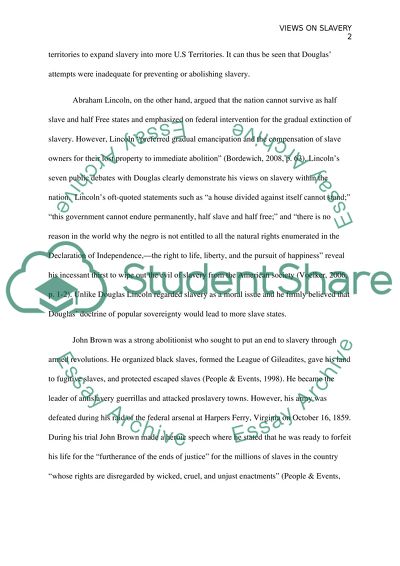Explain how each of the following people viewed slavery and what each Essay. Retrieved from https://studentshare.org/history/1632613-explain-how-each-of-the-following-people-viewed-slavery-and-what-each-thought-should-be-done-about-it-abraham-lincoln-stephen-douglas-and-john-brown-then-explain-who-you-believe-had-the-best-idea-and-why
Explain How Each of the Following People Viewed Slavery and What Each Essay. https://studentshare.org/history/1632613-explain-how-each-of-the-following-people-viewed-slavery-and-what-each-thought-should-be-done-about-it-abraham-lincoln-stephen-douglas-and-john-brown-then-explain-who-you-believe-had-the-best-idea-and-why.


